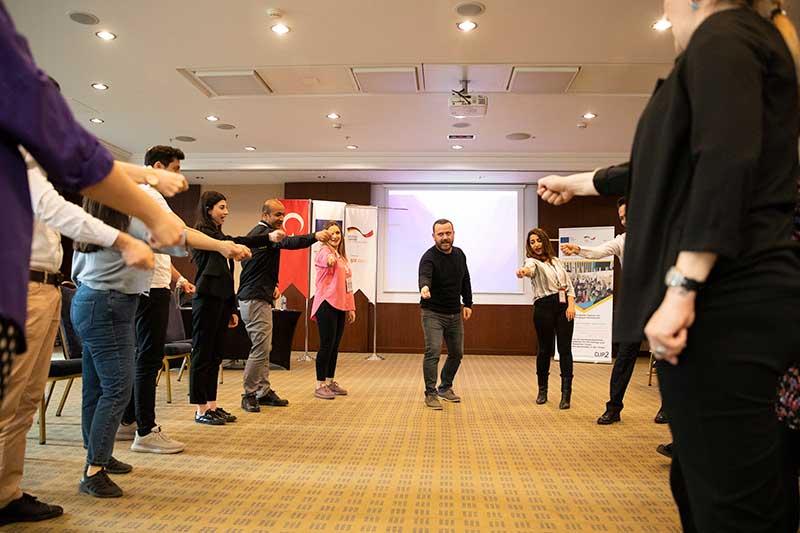The Community-Based Local Initiatives Project (CLIP 2), which is co-financed by the German government and the EU, puts measures into action at the individual and organisational levels to strengthen technical, management, and institutional skills and capacities of local initiatives in Türkiye’s underserved regions.
Additionally, CLIP 2 aims to strengthen mechanisms for coordination and cooperation between NGOs and with state partners on all fronts. This makes it easier to deliver improved, integrated, and complementary social services. For the specific purpose of ensuring institutional sustainability, ADA Türkiye was founded.
As a foundation for building capacity, networking, and collaboration, ADA Türkiye promotes peer learning and peer exchange. In particular, it supports the sustainability of local initiatives and grassroots organisations in order to empower civil society actors. As ADA Türkiye, we aim to do this by expanding our primary audience, enhancing the quality of our services, and empowering one another through peer support.
Our mentoring approach
The mentoring approach taken by ADA Türkiye places a special emphasis on knowledge and experience transfer between partners at all levels. Large, well-established NGOs get specialised capacity-building support from GIZ so they can be ready to “mentor” and empower small NGOs in underserved areas. Together with the smaller NGOs, they form a “cluster” that consists of one mentor overseeing several local initiatives that it provides organisational and technical support for throughout the partnership period.
Smaller organisations’ capacities within the cluster are improved in the areas of project management (operations, finance, M&E, visibility, fundraising), organisational development (organisational structure, documents and policies, HR procedures, strategic planning), as well as within thematic areas depending on the mentor’s area of expertise and the needs of the local initiative.
Larger NGOs, on the other hand, are also given capacity-building tools in their mentoring roles for greater impact. Thus, the network ensures a sustainable capacity development structure for the empowerment of civil society actors and fosters an environment that is ideal to partner learning and exchange.
The network and its mentoring strategy offer a framework for effective cooperation among ADA Türkiye members of various sizes and capacities, and they also constitute a long-term mechanism by which NGOs can cooperate, become capacitated, establish referral pathways, boost their credibility, and be prepared to receive (national and international) funding in the future.
Future expansion of ADA Türkiye is intended to make it attractive for other actors to invest in or take over fully so that it can function independently.






